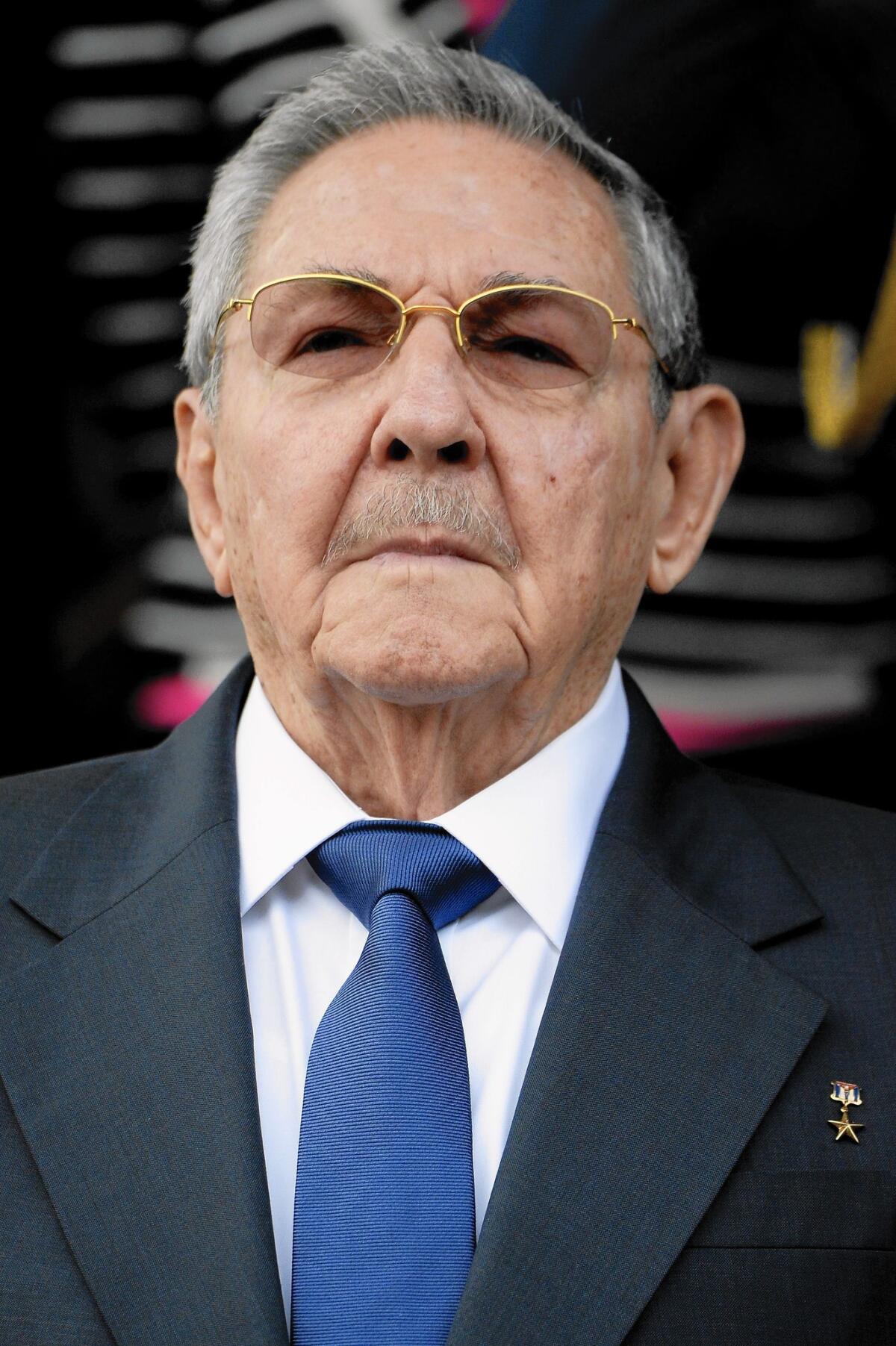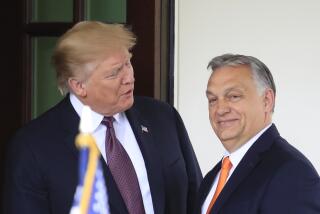Cuban President Raul Castro will address the United Nations this month

- Share via
Reporting from WASHINGTON — Cuban President Raul Castro will speak to the United Nations General Assembly session in New York this month for the first time, Cuban officials confirmed Wednesday, in a sign of his desire to broaden the island’s ties with the outside world.
Castro and President Obama, who are seeking to normalize relations after decades of U.S.-Cuba division, will address the annual gathering of world leaders Sept. 28.
Presidents Vladimir Putin of Russia, Xi Jinping of China and Hassan Rouhani of Iran are also scheduled to speak that day. The U.N. meeting will begin Sept. 25 with a speech by Pope Francis, whose visit will include stops in Washington and Philadelphia.
Cuban Foreign Minister Bruno Rodriguez said Wednesday in Havana that he expects “interactions” between Castro and Obama, the Reuters news agency reported. But Josh Earnest, the White House press secretary, was noncommittal when asked whether the two leaders might meet.
Cuba signaled its interest in expanding its economic relationship with the United States when the two countries announced the normalization effort Dec. 17. Washington and Havana restored diplomatic relations and reopened embassies this summer for the first time since 1961. On Friday, they held the first meeting of a new commission organized to help oversee the normalization.
But Cuba has been slow to embrace the kind of democratic and human rights reforms the Obama administration is seeking. It’s not clear that Castro intends to indicate willingness to change in his U.N. address.
It will be Castro’s first U.S. visit as president. The Cuban leader, 84, took over from his ailing brother Fidel provisionally in 2006 and definitively in 2008.
The visit “is a sign that they want to reengage, and it’s symbolically important,” said Carl Meacham, a Latin America specialist at the nonpartisan Center for Strategic and International Studies. “But while we know they want more foreign direct investment, there’s not been a Cuban glasnost so far,” he said, using the Russian word for “opening.”
The Cuban government has been wary about easing political control on the island nation. U.S. critics of the normalization, including conservative Republicans from Florida, contend that the Obama administration made concessions on trade, travel and diplomatic relations without getting Havana to commit to significant reforms.
Castro will demand in his remarks that the United States drop its decades-old trade embargo on Cuba, Rodriguez told reporters. The foreign minister said the embargo had cost Cuba $121 billion.
Obama has urged Congress to end the embargo. But many key lawmakers are opposed, and any easing is likely to be gradual.
More to Read
Sign up for Essential California
The most important California stories and recommendations in your inbox every morning.
You may occasionally receive promotional content from the Los Angeles Times.











